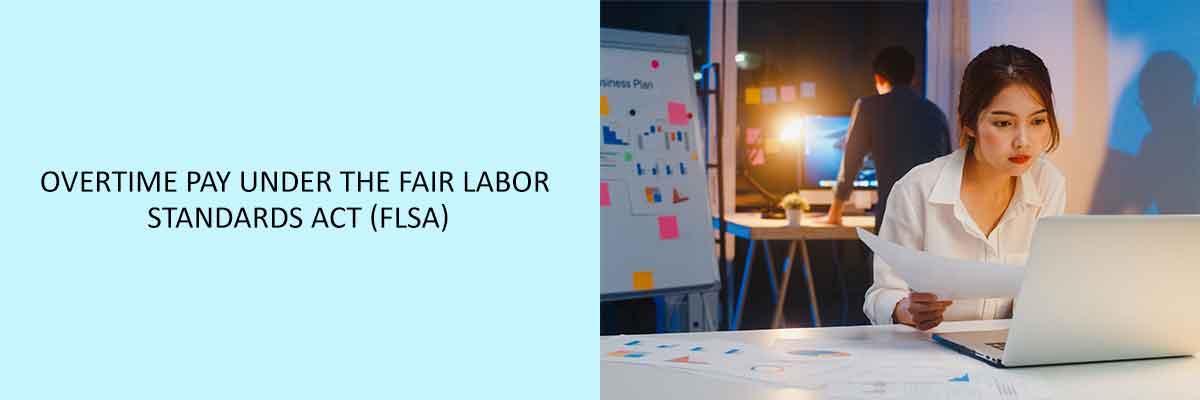The FLSA (Fair Labor Standards Act) establishes the standards for minimum wage, child labor, equal pay for women, overtime pay, and other employment standards. The law applies to workers in both the private and public sectors including state, local, and federal government in the United States. Most workers are protected by the FLSA, regardless of their occupation, industry, or geographic location. The FLSA is a federal law that sets the minimum wage and overtime pay. It applies to full-time and part-time employees in the private and public sectors in the US.
What is Overtime Pay?
According to the US Department of Labor, the Fair Labor Standards Act (FLSA) is the federal law that mandates the payment of overtime wages to employees who work more than 40 hours a week. While companies may classify some positions as exempt, most workers are eligible for overtime pay, and it is important that you know your rights under FLSA.
Overtime pay (also called time and a half) is a premium that employers pay to employees who work more than 40 hours per week. This extra pay is a requirement of the Fair Labor Standards Act (FLSA). While the FLSA does not mandate overtime pay, it does require that employers pay time-and-a-half for any hours worked over 40 per week. Most employees are eligible for overtime pay. If you are not sure if you are eligible, consult your job description or contact your company’s human resources department.
Who Is Eligible For Overtime Pay?
Employers are required to pay overtime wages to hourly workers after they have worked 40 hours in a given week. However, not all workers are eligible for overtime pay. For example, most salaried workers are not entitled to overtime pay. To be eligible for overtime pay, an employee must earn less than $455 per week. In addition, an employee must be paid on a salary basis. This means that an employee must be paid a predetermined amount that is not subject to reduction because of variations in the quality or quantity of work performed and must be paid a predetermined amount on a weekly basis. Some non discretionary commissions, bonuses, and incentive pays can count towards 10% of an exempt standard salary level of the employee.
There are some exceptions to FLSA (Fair Labor Standards Act) rules that exclude some workers from eligibility for overtime payment and the minimum wage. For instance, workers who work as administrative, executive, computer, sales, creative, or learned experts are usually not entitled to overtime payments.
Final Words
In some states, there can be local regulations that supplement FLSA (Fair Labor Standards Act) rules. To check compliance, check local laws with the state department or the labor office.
To know more about the Fair Labor Standards Act, attend the Compliance Prime webinar.


